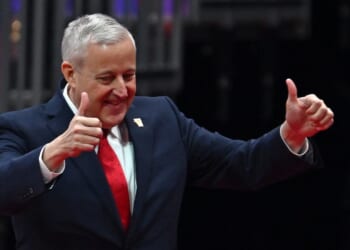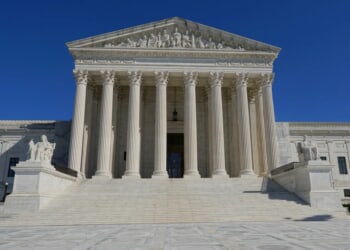Following one of the steepest market sell-offs in history due to his recently imposed worldwide tariffs, President Donald Trump today made the decision to reverse course and lowered them to 10 percent on all countries aside from China. At time of writing, this contributed to the largest single-day gain in the Nasdaq since 2008.
For good reason, too. This recovery rally is as predictable and self-inflicted as was the sell-off. Over the last decade, there has been a steadily growing section of the American populace — broadly, but not exclusively on the right — that has been pushing for more trade protectionism under the guise of protecting American jobs. While there has been pushback — admittedly from politicians and groups generally more associated as “establishment” — there was very little to show for it.
President Trump, ironically, may be the one to reverse the tide on this. Having enjoyed decades of global free trade, Americans outside of academic and business circles have largely been able to cast off import tariffs to more of a philosophical exercise from centuries gone by. When combined with promises of restoring American jobs, increasing domestic production capabilities for critical infrastructure, and decreasing foreign dependency, it’s little wonder why many have found themselves moving in such a direction.
While some politicians in recent years have increased tariffs — notably Trump himself in his first term — they were extremely limited in their scope. For example, he had implemented a 10 percent tariff on aluminum imports. While this did increase the cost of certain goods domestically, slightly more expensive tin foil wasn’t exactly going to send the economy into a nosedive.
Fast forward to the self-proclaimed “Liberation Day,” just a week ago. The worldwide hike in tariffs across the board was unlike anything anyone alive had ever seen in the U.S. Experts may have muddied their reputation in recent years by politicizing events like the COVID pandemic and insisting that inflation during the early Biden administration would be “transitory,”but they were right about tariffs.
The other day, the Wall Street Journal ran an article titled “Here’s the iPhone. Here’s the iPhone with Tariffs.” It featured analysis on the iPhone 16 Pro, which would see the cost of production rise by nearly 50 percent. Apple was hardly alone here, with goods from phones to computers to automobiles — including from American-owned companies — all set to be impacted.
It should come as little surprise, then, that Americans started to act in what was in their best interest — but also a dangerous inflationary trend. They started buying more today out of fear that it would be more expensive tomorrow. Apple users rushed to their local store to upgrade before tariffs sent prices soaring. It isn’t just one-time expenses like phone upgrades, though: a recent poll by Reuters/Ipsos found that 73 percent of Americans expected to see price hikes in everyday goods.
Trends like that are the kiss of death for fighting inflation. While coupled with an overall cooling economy and pressure on the Federal Reserve to cut interest rates while going into inflationary trends, things were looking grim for the last week.
By reversing course on this, Trump has pulled us back from the brink — for now. This is only a 90-day extension, and we very well could find ourselves back in a similar situation in three months’ time. He also did so before most other countries retaliated by raising their own tariffs — which will not be a guaranteed outcome in the future now that the world knows what to expect.
If Trump is serious about wanting to lower barriers of trade for American goods overseas, then we should welcome further free trade negotiations with countries. Trump is right that many of them do have far higher tariffs and barriers to entry than we do. The correct approach on this is not to start a trade war that hurts Americans again, but rather to get other countries to treat us fairly. Unilaterally raising tariffs worldwide did not put pressure on specific countries to lower their tariffs but rather risked the American economy and hurt domestic consumption.
Kyle Moran is a political commentator with Young Voices, specializing in international affairs and national security. He graduated from the University of Rhode Island, and his work has been published in the American Enterprise Institute’s Critical Threats Project and Real Clear Politics.




![Jasmine Crockett Justifies Mass Illegal Immigration With Bizarre Argument [WATCH]](https://www.right2024.com/wp-content/uploads/2025/03/1742007023_Jasmine-Crockett-Justifies-Mass-Illegal-Immigration-With-Bizarre-Argument-WATCH-350x250.jpg)


![NYC Tourist Helicopter Falls into Hudson River, Siemens Executive and Family Among Those Killed [WATCH]](https://www.right2024.com/wp-content/uploads/2025/04/NYC-Tourist-Helicopter-Falls-into-Hudson-River-Siemens-Executive-and-350x250.jpg)








